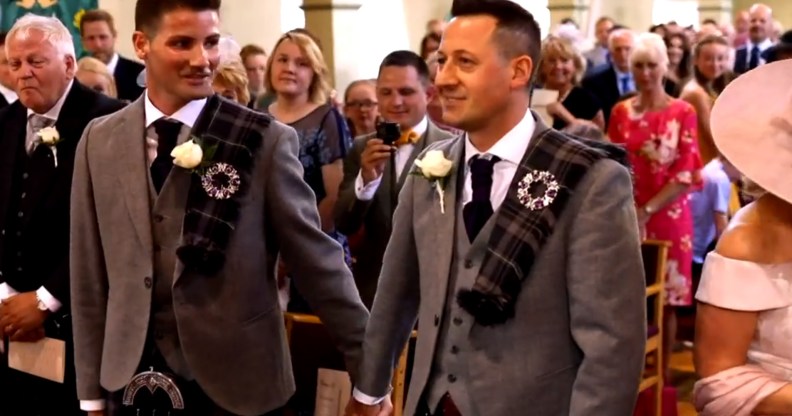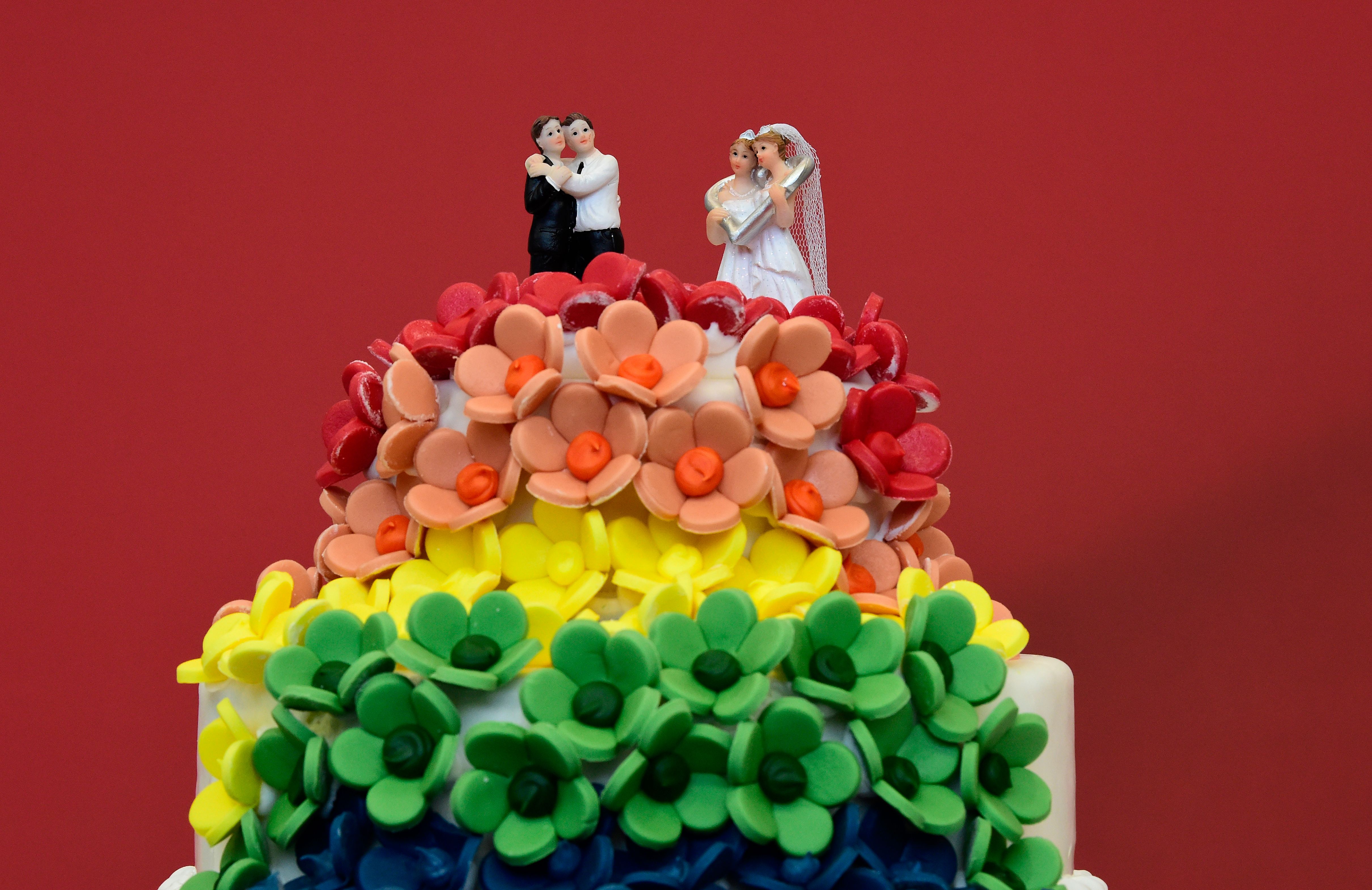BBC receives more than 1,200 complaints over Songs of Praise same-sex wedding

Jamie Wallace and Ian McDowall on the BBC’s Songs of Praise. (BBC)
The BBC reportedly received more than 1,200 complaints after it aired a same-sex wedding on long-running religious show Songs of Praise.
The episode covering faith and marriage was shown on August 18 and featured the ceremony of Ian McDowall, 39 and Jamie Wallace, 27, at the Rutherglen United Reformed Church, near Glasgow.
The two men became the first same-sex couple to marry at the church after receiving the backing of their congregation.
According to Mail Online, some viewers complained that the same-sex wedding conflicted with their Christian views.
Some Christian viewers reportedly complain over same-sex wedding in Songs of Praise.
While the the United Reformed Church has supported same-sex marriage, these services remained banned by the Church of England and the Church in Wales.
However, a spokesperson from Songs of Praise, which has been running since 1961, told the Mail Online that the BBC also received credit for showing the same-sex wedding.

A same-sex wedding cake. (Getty)
“As well as the complaints, we received almost 400 letters of congratulations, applauding the fact that Songs of Praise is reflecting modern Christianity,” the spokesperson told the publication.
Songs of Praise receives congratulations alongside complaints.
Same-sex marriage was legalised in England and Wales in July 2013 and in the following year in Scotland.
As well as the complaints, we received almost 400 letters of congratulations, applauding the fact that Songs of Praise is reflecting modern Christianity.
It remains illegal for same-sex couples to wed in Northern Ireland.
Alongside Songs of Praise, there’s been growing calls for the media to increase its representation of LGBT+ people of faith.
Vicky Beeching, a gay writer and equality campaigner, who works to make the church a more diverse and inclusive place, said last month that better media representation would help to show viewers that people can be both religious and LGBT+.
“There’s a strong belief in many religious communities that you cannot be LGBTQ and a person of faith,” she told PinkNews.
“That was the view I grew up with and it forced me to stay in the closet until I was 35 years old.
“That paradigm pushes people to choose between their beliefs and their LGBTQ identity, which is an immensely painful and damaging situation.”

